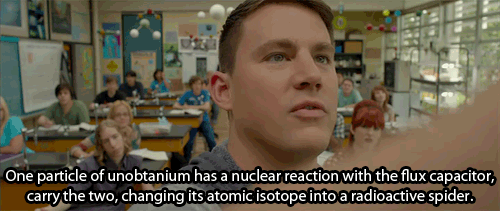AP European History
AKA "Torture" :)
Section 1
1.
New ideas and methods in astronomy: People became super fed up with Aristotelian and Ptolemic theory because they were both pretty sucky and couldn't exlpain the mathematical observations of the stars and planets, so people like scientists were like, "Man, we have to figure out a new theory as to why everything we think we know is innacurate and doesn't mathc up with what we are literally seeing with our eyeballs". So some new ideas emerged, such as that of Copernicus' thing with the divine circles, with the Sun at the center and it's little planet babies circling it perfectly.
Why it led scientists to question the authority of the ancients and religion to develop a heliocentric view of the cosmos: Well, what with all of the new discoveries being made that the Aristotleian theory wasn't all that accurate, so they were thinking, "Man, these old church teachings and acncient texts kind of suck? Could it be possible that things are not as they say? I mean, the evidence does show that the Earth is most likely the thing moving... -GASP- COULD WE BE MOVING .... AROUND THE SUN????? Probably. "
STUPID WILLIAM HARVEY CUT OPEN SOME PEOPLE AND FIGURED OUT WHAT WAS REALLY OBVIOUS ABOUT OUR HEARTS BECAUSE THEY ARE LITTLE PUMPS PUSHING BLOOD INTO OUR BODIES AND OF COURSE EVERYONE ELSE WAS SURPRISED AS HELL BECAUSE THEY WERE ALL STUPID AND THOUGHT DISSECTING PEOPLE WAS WRONG AND SO THEY MISSED OUT ON LITERALLY EVERY OBVIOUS THING ABOUT OURSELVES AND ALL BELIEVED SOME STUPID AND INACCURATE STUFF. STUPID GALEN THOUGHT "YEAH OUR HEARTS ARE STRONG BECAUSE IT HOLDS OUR ''''HUMORS''''"
René Descartes defined deductive reasoning by pubishing his book, Discourse on Method, which contained his philosophy and scientific methodology. He defended skepticism and deductive reasoning, which is defined as deriving conclusions that logically flow from a premise, reasoning from basic or known truths. Francis Bacon was an English politician who was once lord chancellor of England under James I. He was like, DAMN SON, I WANT ME SOME OF THAT NEW SCIENCE. He rejected ancient authority and thought we should all make discoveries without preconcieved notions-- AKA inductive reasoning (drawing general conclusions from particular concrete observations.) He believed that science would benefit commerce and industry and improve the human condition by giving people unprecedented power over their environment.
2. Alright so that there Voltaire and Montesqieu and Didertot they weren't all about that science, right? They were mainly philosophers and they liked that there humanism. But they used the ideals of inductive reasoning and deductive reasoning and they used that in their writings about society and humans in general and they did some good stuff right there.
So Locke and Roussea were like "Hey maybe people are all born deserving life, liberty, and some nice stuff?" They reached this conclusion by observing what was around them and considering humans as blank slates or "Tabula rasas" and that we are shaped by all the things that come at us in life as they come. The concepts that they had, though, were later stolen by our Founding Fathers when they wrote the Constitution." Wow we are so they most free and most just nation in the world and the most original" NOT
4.So when John Locke and all them brothas went and wrote their philosophies and they were like "DIVINE RIGHT ISN'T A THIIIING" "THERE'S A SOCIAL CONTRACT YOU STUPID KING" and they were like, "no. no, no, you are not our supreme ruler appointed by God. We're all just indu=ividuals doing our stuff until we die damn"
5.
Deism: belief in the existence of a supreme being, specifically of a creator who does not intervene in the universe. Very closely related to the clockmaker theory.
Skepticism: It is the belief that certain knowledge is impossible to achieve, or a disbelief in something.
Atheism: Not believing in any god(s)



